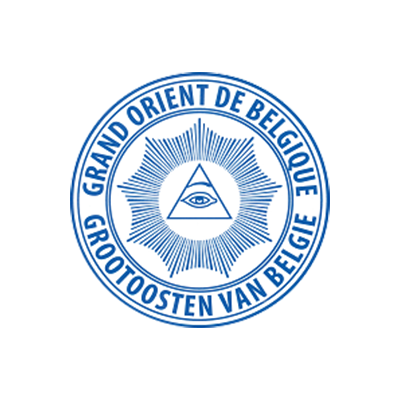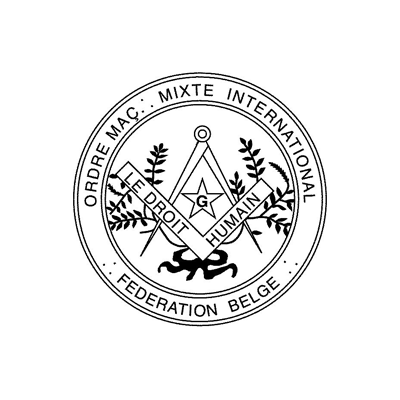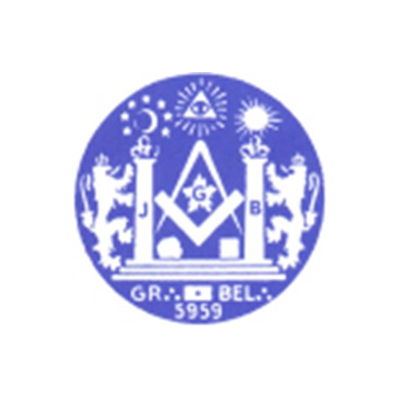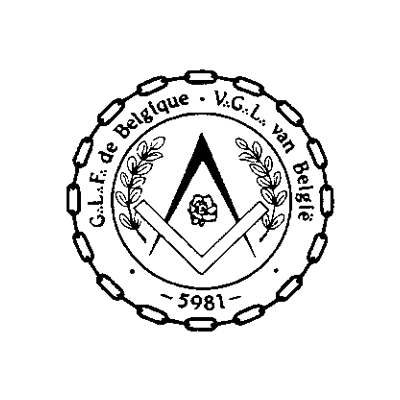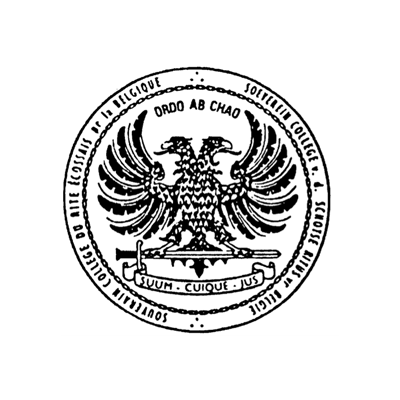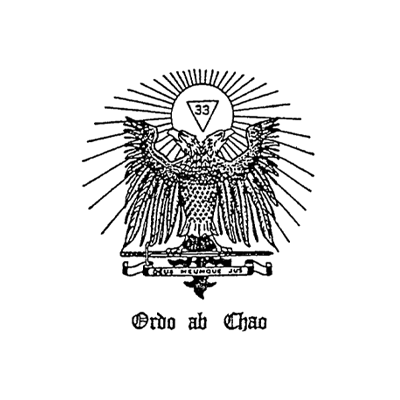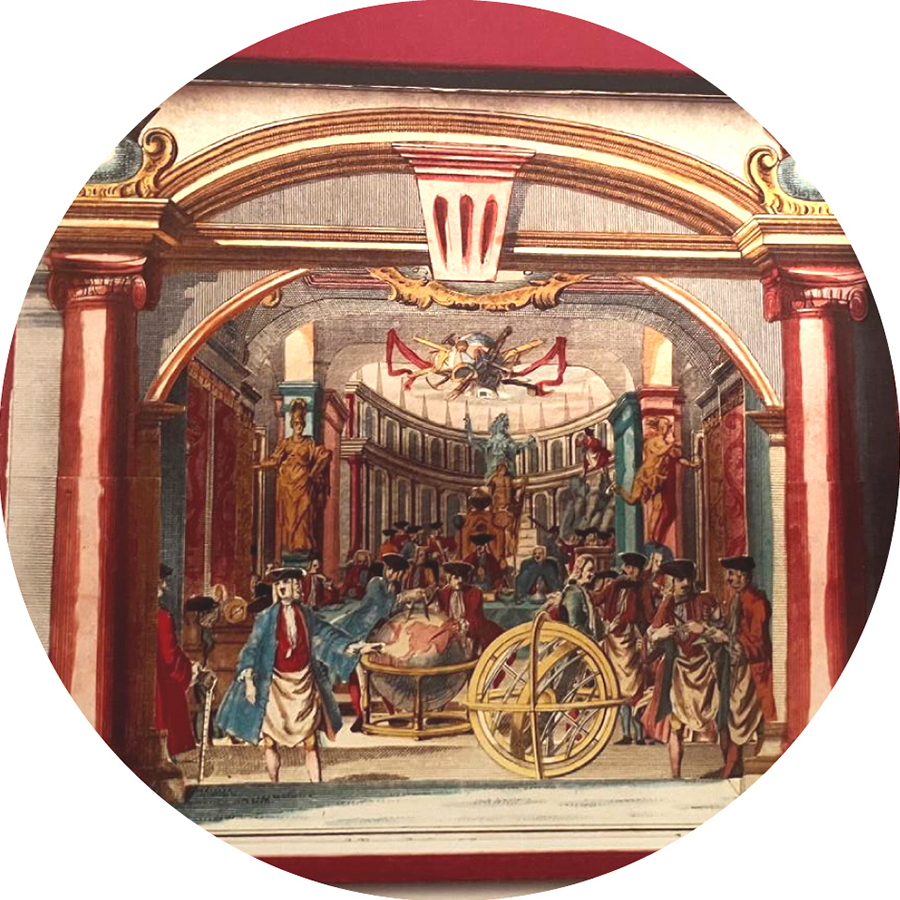
Our History
Freemasonry in Belgium has its roots in the early 18th century. Over the years, it has played a crucial role as a progressive, philanthropic and emancipatory movement, particularly during the revolution for our country’s independence in 1830, but also on the level of official education in the years 1878-1884 and during the many debates on ethical issues in the 20th century.
The museum’s history began in 1833 when Théodore Verhaegen, founder of the Université Libre de Bruxelles, established the first museum in his Lodge, Les Amis Philanthropes. In 1984, the Grand Orient of Belgium suggested the idea of creating an independent museum. Several Masonic Lodges and Jurisdictions supported this initiative towards a greater openness. The non-profit organisation the Friends of the Belgian Museum of Freemasonry was founded. In 2011, it gave the name ‘Belgian Museum of Freemasonry’ to the institution and a permanent exhibition opened to the public.
The museum aims to preserve and to show its rich heritage, witnesses to the historical development, practices and values of Belgian and international Freemasonry. It is a place for reflection and exchange and invites visitors into the fascinating world of Freemasonry, an ancient universalist society that still too often encounters incomprehension.
Our Collection
The museum is housed on the ground floor of the magnificent Dewez House, a late 18th century neoclassical mansion designed by Laurent-Benoît Dewez, architect to the court of Charles of Lorraine, governor of the Austrian Netherlands.The collection illustrates Freemasonry as an initiatory society and its history since the 18th century and its international spreading. Objects used during meetings and banquets such as e.g. masonic regalia bear witness to the symbolism so characteristic of Freemasonry.
Documents, books, paintings and sculptures evoke the distant past and present. They demonstrate the struggle for emancipation to which Freemasonry has contributed in helping to shape our societies. Illustrious personalities and their important contributions are highlighted. The collection further refers to the anti-Masonic movements that raged under totalitarian regimes by taking the lives of many men and women. This witnesses of the heroism performed by many Freemasons in the name of liberty, fraternity and equality, the fundamental values they embraced.
- Virtual Visit
- Our Selection of Objects
- Focus On…
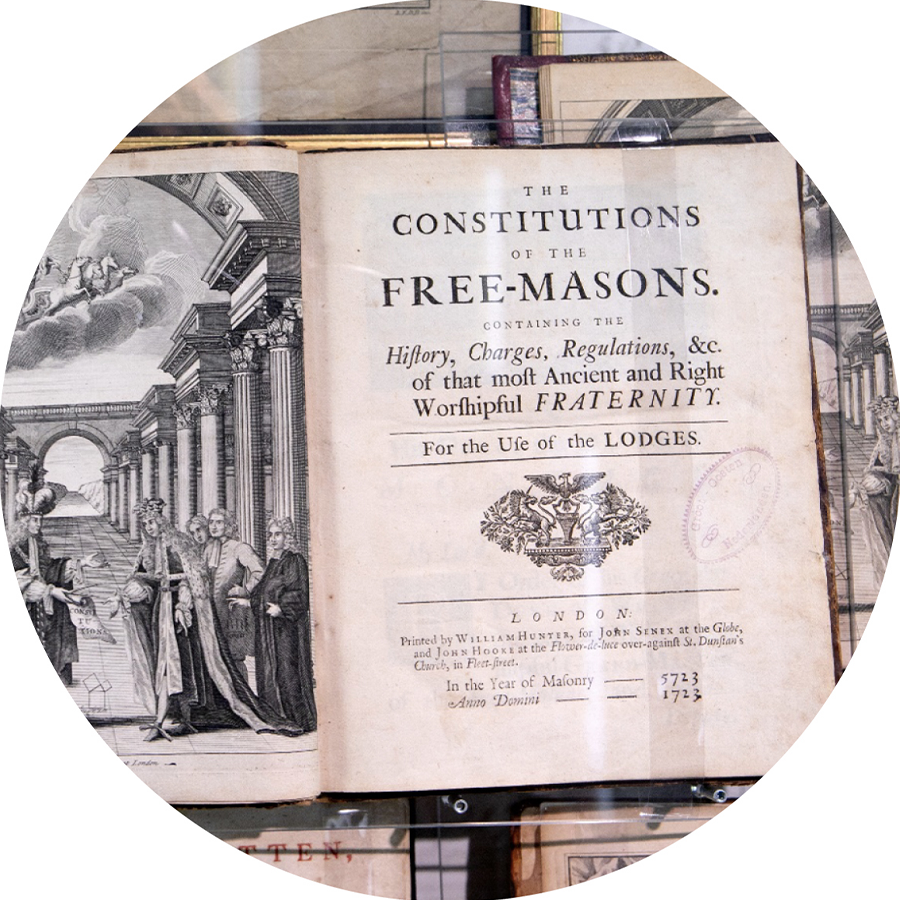
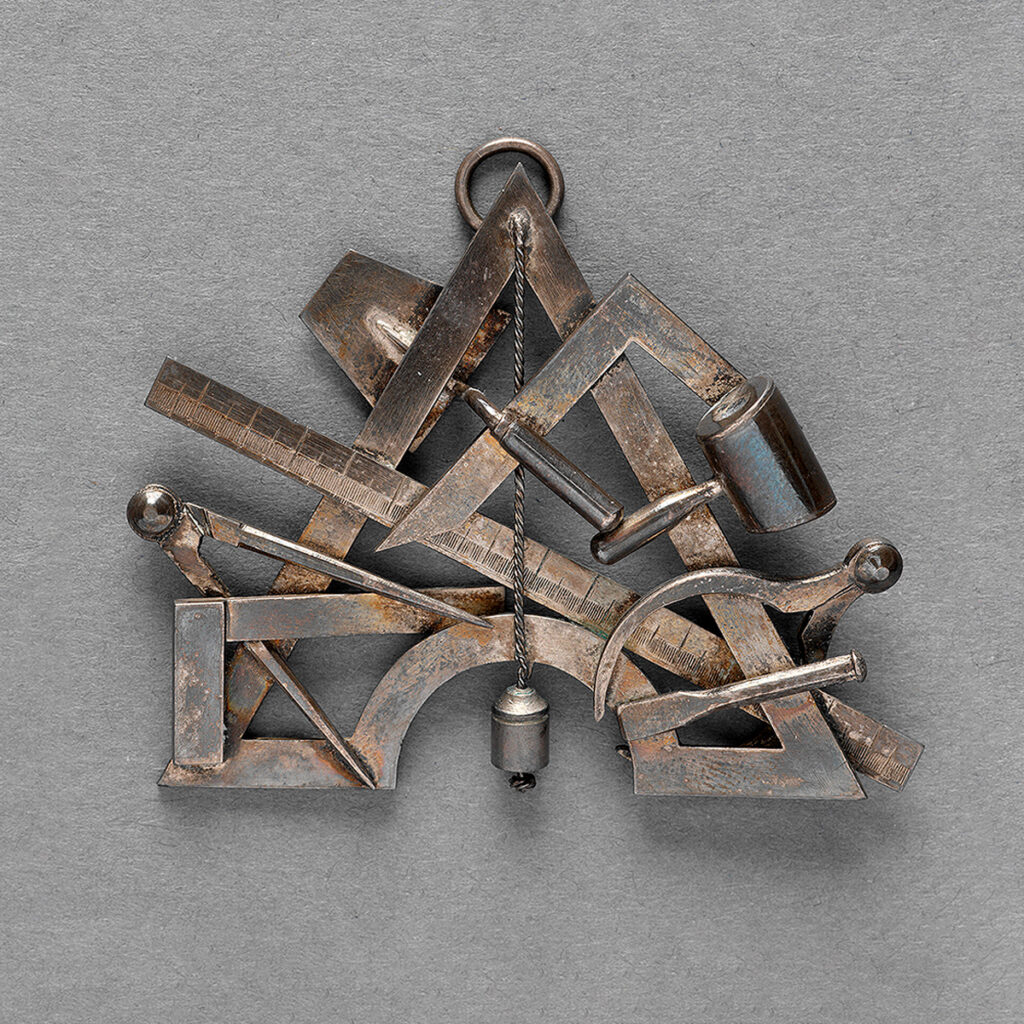
Our Organisation
Several Masonic Obediences and Jurisdictions support the museum. With the help of the Wallonia-Brussels Federation, the City of Brussels, the Friends of the Belgian Museum of Freemasonry, and other sponsors, the museum continues to study and preserve its rich heritage.
It also organises thematic exhibitions that can be visited at the same time as the permanent collection. The Museum participates in the major cultural events organised by the city and the regions.
Research Centre
As a scientific institution, the museum curates, catalogues and conserves a rich collection. It also welcomes students, researchers, historians, art historians, sociologists and philosophers who study Freemasonry, its symbols and its philosophical heritage in their research.
The building also houses the CEDOM-MADOC, the Study and Documentation Centre of Freemasonry in Belgium, which preserves historical archives and has an excellent and rich library. It is open to everyone: Freemasons of all Obediences, scientists, researchers or people who want to deepen their knowledge on the subject. The centre also organises activities and conferences on the history of Freemasonry in Belgium.
As part of its scientific mission, the museum is a member of AMMLA (Association of Masonic Museums Libraries Archives of Europe) and collaborates with other museum organisations such as the ICOM (International Council of Museums).
- CEDOM
- +32 2 223 06 04
- [email protected]
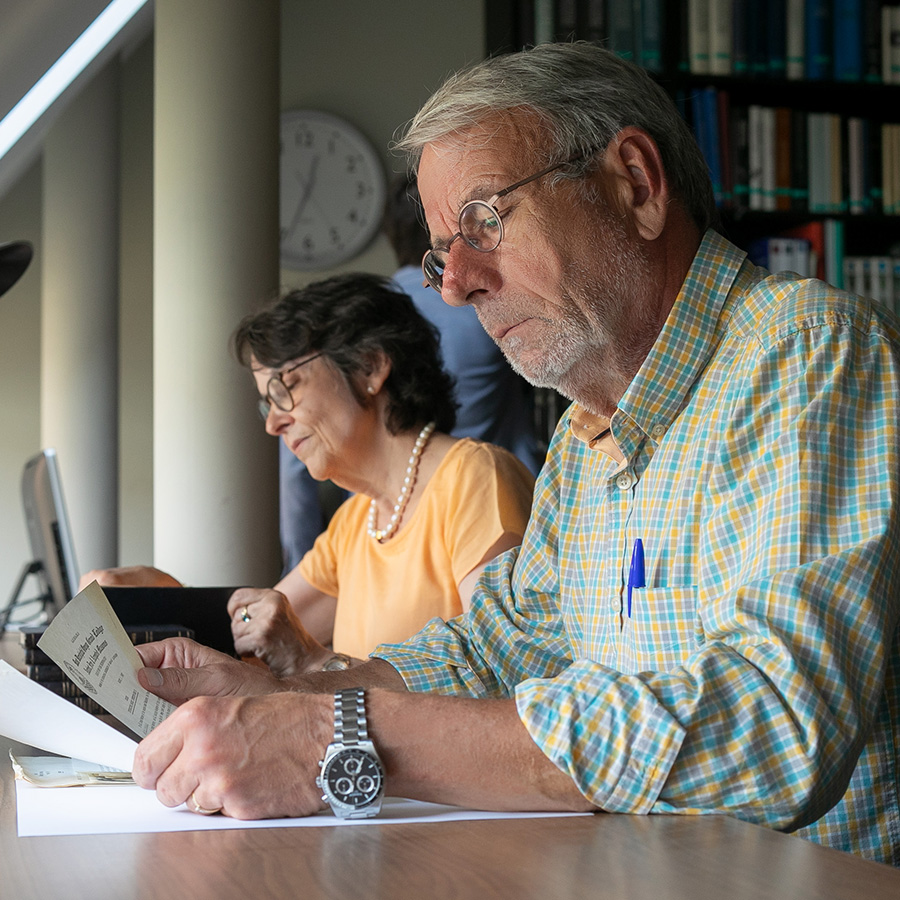
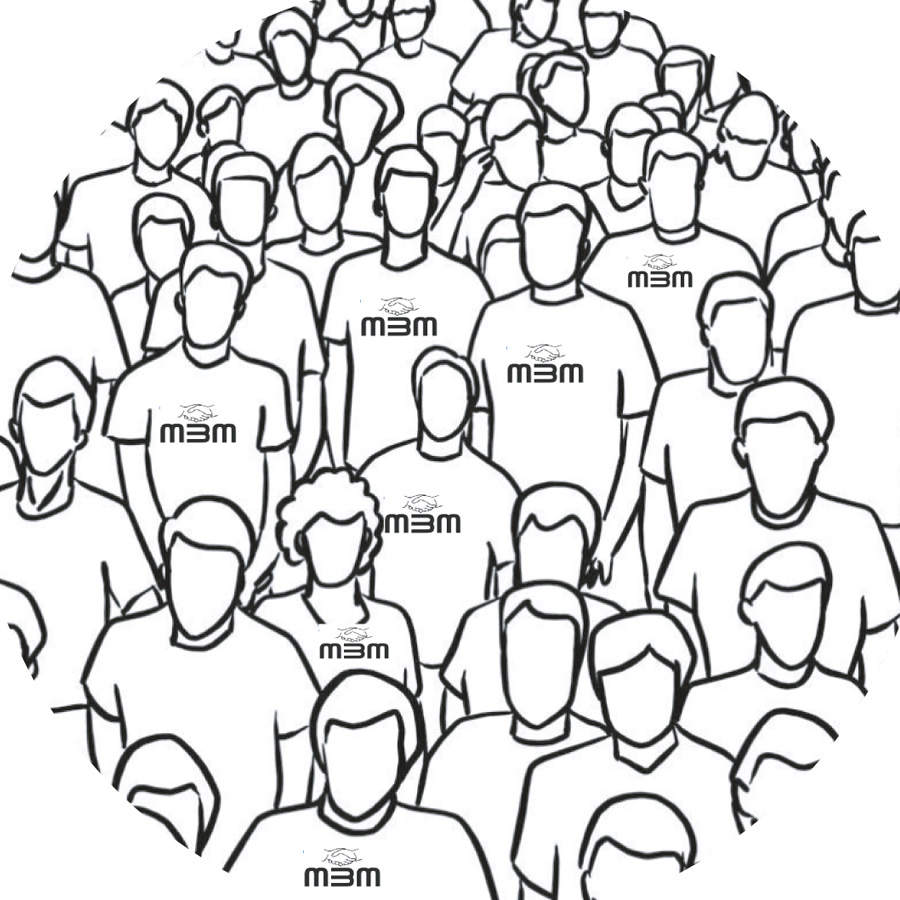
Our Friends
The aim of the Friends of the Belgian Museum of Freemasonry is to support the museum, to contribute to its reputation and to help make Freemasonry better understandable to all.
The Friends unite Masons and non-Masons. They organise conferences, concerts and various cultural activities on site or in the Temples.




